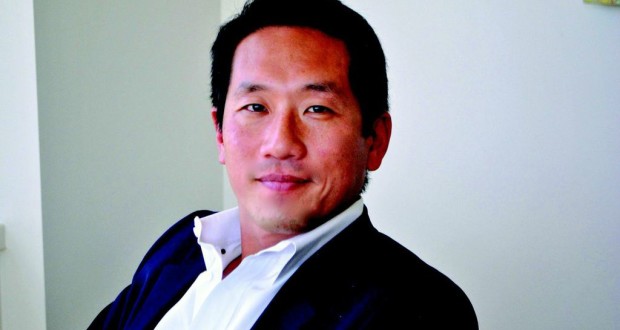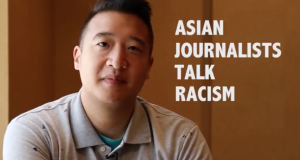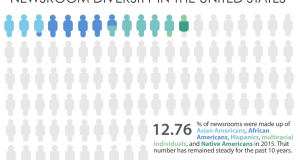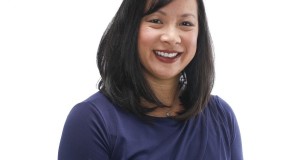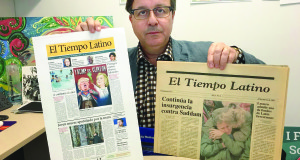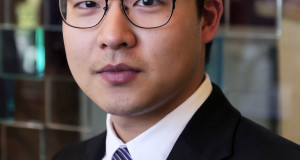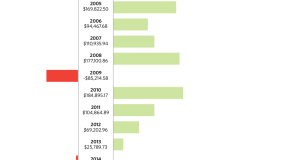With 60 percent of his clients as journalists, literary agent Howard Yoon knows what it takes to turn a 700-word article into a bestselling book. But that’s not to say it’s easy for journalists to get that coveted book deal. Even with successful writing careers and countless scoops, journalists still face plenty of personal and professional obstacles before their work ever hits the shelves.
Yoon, a principal at the Ross Yoon Agency in Washington, also teaches a narrative nonfiction writing class at Georgetown University’s graduate journalism program, a popular choice among students and whose seats quickly fill each semester. And the way Yoon sees the industry, there’s never been a better time to be a young Asian American writer — poets excluded.
Law and medicine are still popular choices for Asian Americans in the job force. How did you get into publishing?
I thought I was going to go to law school out of college. I went to the University of Virginia, where I was an English and religion double major. I was the editor of a paper down there, and I really loved editing and writing. So I got this job at a law firm, but it was with somebody who was a literary agent. It really intrigued me, and I was lucky to get the job. The woman who hired me is actually my partner now, Gail Ross of Ross Yoon. And I’ve been working with her for the most part for the last 22 years.
How did you become a faculty member at Georgetown University’s School of Continuing Studies?
The assistant dean at the time, who was a journalist and former speechwriter, was building this program at Georgetown. She had worked with me before and knew I was pretty good at working with clients, journalists and authors [to] figure out their voice and helping them figure out what they should be writing. I based this course on everything I did in my day job with literary clients. The fun thing was I could take those skills and work them to the classroom.
What’s the first step in getting published?
There’s a personal decision you have to consider and a professional one. The personal one is: Do I want to be writing about this subject for the next year? And then wait for the publisher to take another year to get it out on the shelf? You really have to prepare to put up with it, and love it and understand the sacrifices you’re going to make on a personal level.
And on the professional side?
You have to ask yourself, “Has this story been told before? Does it have to be told? And are people willing to pay money to read about it as you want to tell it?” What we try to do is get the author, journalist and the subject inextricably tied together. The journalist needs to pick something that only he or she could write.
What kind of book idea excites you? What would grab your attention?
It’s got to be an authentic story, and it’s got to be a story that I find almost unbelievable. If you can captivate your friends around a dinner table telling a story of that book idea, if it really captures their attention and they say, “That sounds great,” or, “I can’t believe that,” then you’ve got something to work with. And it really has to be exceptional, because there are too many mediocre ideas out there that are executed by mediocre writers. So go for something you really believe in and that you know is original, authentic and you could write in your best voice.
What makes a good book?
If someone is willing to pay $28 to read the longer version versus the shorter version that exists in a magazine. It’s tough these days because the publishing business has gotten a lot tougher to break into. There’s so much content out there that’s vying for our attention, so you really have to find an incredible story, something that makes people feel like, “Oh my God, I really want to experience that story in its entirety.”
What’s the biggest misconception that a journalist has about getting a book published?
There are some people who are short-form content consumers and writers. There are some journalists who don’t read books and that becomes clear when you work with them. They don’t understand long-form narrative. I equate it to sprinters versus marathon runners. Writing a book is to do a distance run, and some people’s writing muscles just aren’t conditioned for that. You can get there, but you have to understand what it takes to get there. That’s particularly true of younger journalists. They assume they can write long-form because they’ve been doing other formats, but it’s a different race.
How has the writing industry – not just journalists but also authors and poets – opened for Asian Americans?
When I started out in the early ’90s, there was nowhere near the kind of cultural penetration that Asians have had in the United States. It seemed to be more of a rare occurrence than the norm for the creative type to be Asian. Look at the demographics and numbers. The Asian American population is a pretty steady group of readers. [Asian Americans are among the most educated in the United States with 50.5 percent having a bachelor’s degree or higher, according to the U.S. Census, compared with 29.1 percent of all Americans.] And the perspectives that Asian journalists bring add another element of interest regardless of whatever they’re writing on. It’s a really good time for Asian writers and Asian journalists. It’s never been a good time for poets.
There’s a lot of talk about the current state of journalism from the decline of print to the emergence of non-traditional mediums. How do you see it?
Journalism has gone through so much disruption, but I’d rather be a journalist entering the field now than be a journalist on my way out. There are a lot more new opportunities to do stuff and more platforms to have your voice heard with the non-institutional journalism groups, and there are great people who are re-crafting the state of journalism. Young journalists are positioned really well for that movement. It just takes a lot of initiative.
Find @MelissahYang on Twitter.
 VOICES Publishing from the AAJA National Convention
VOICES Publishing from the AAJA National Convention

